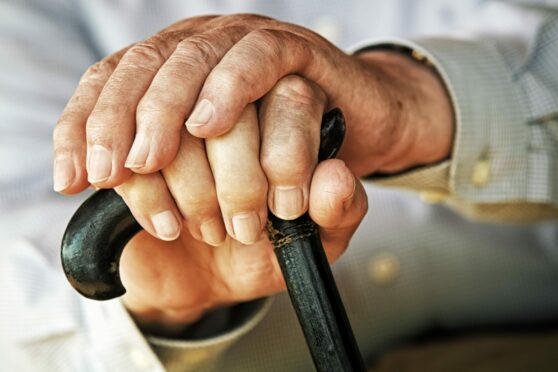Sir, – I tell my kids if I knew when I was going to die I’d give them the excess money now.
The big unknown for me and millions of others is the cost of old age care.
Therefore, I think the UK Government’s proposed £86K cap on care cost is a big step forward.
I’d go further, though, and adopt former social security minister Peter Lilley’s proposal for a state-backed insurance scheme, based on a one-off charge related to the value of your house, typically £16K, collected afterwards from your estate whether you had care or not.
There are variations of this all over the world.
The SNP are designing a national care system. Why can’t we do that here for those that can afford it and take the burden off the rest?
Allan Sutherland, Willow Row, Stonehaven.
Oil and gas needed for years to come
Sir, – While we all agree that climate change is the most important thing we should be addressing just now, regardless of one’s political affiliations, we must accept that there will be a need for oil and gas for years to come.
We must also accept that very few of us would be able to afford to replace our very efficient gas boilers with heat pumps which are not suitable for all homes, or replace our present cars for electric ones which – as well as being expensive – are as yet not suitable range-wise for longer journeys unless you have the time to spare waiting at charging points.
Therefore I think that the Cambo oilfield should go ahead so as not to leave us depending on imports – mostly from volatile sources.
Much better to have our own supply.
Alan McPherson, Grant Street, Cullen.
Powerhouse with own green energy
Sir, – In another week when sleaze and corruption piles high in Westminster and the ink has barely dried on the COP26 memorandum, it wasn’t surprising to see deflection techniques from UK Government supporters, complaining about migrating our energy requirements from oil and gas.
This logic is in line with what we have already seen – cutting the Aberdeenshire carbon capture initiative, cutting overseas aid and, surprisingly, flying in and out of Glasgow for COP26.
The Scottish Government needs no lectures about delivering a managed transition from oil and gas to a green economy.
Many of us can look at what previous UK governments have done to the car, coal, steel industries, and are now doing to the farming and fishing sectors.
As someone with a long career in the oil and gas industry, even I recognise that the energy transition has to start somewhere. Kicking it into the long grass is not an option.
If we are going to learn lessons, it will be from our neighbours Norway, who like the Scottish Government promise to balance social and economic considerations with climate change targets – raising carbon taxes, supporting the drive to non-hydrocarbon energy sources. In Norway electric vehicles already account for about 70% of new sales, versus 7% in the UK.
Nobody in Holyrood is talking about a cliff-edge transition, but we do need to help oil and gas companies turn into energy companies – so let’s be a small, rich, green-energy powerhouse with full control of all our economic, fiscal and social levers. It’s called independence.
Willie Dunbar, Deeside Gardens, Aberdeen.
Monday’s letter from Colin Wilson quoted David Philip as saying of the Scottish Government that “if they were a business, the management would have given them their jotters long ago”. These were in fact the words of another correspondent, George Nicol.
We apologise for any confusion.
